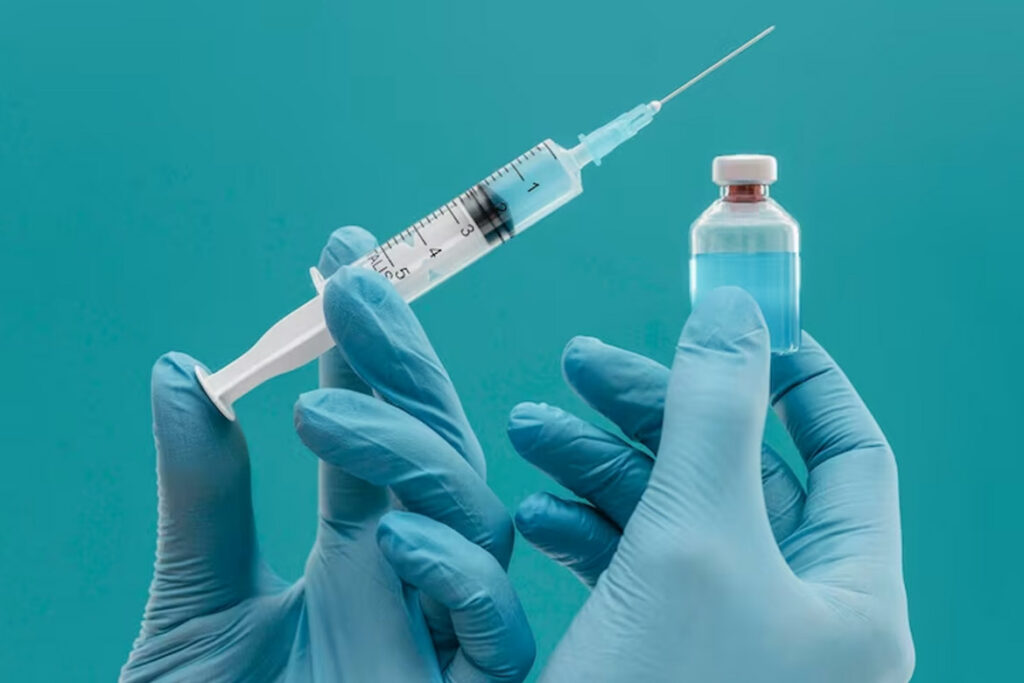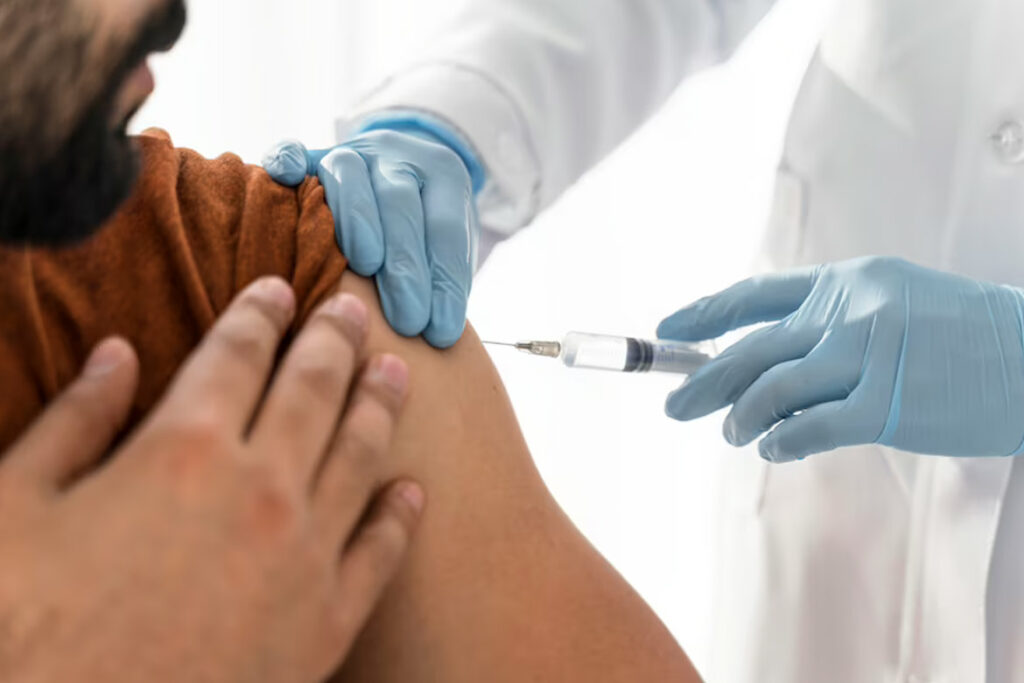Tetanus is a serious and potentially fatal disease of the nervous system that is caused by a toxin-producing bacterium called Clostridium tetani. The bacteria are commonly found in soil, dust, manure, and saliva, and can enter the body through a break in the skin, such as a cut, puncture wound, burn, or animal bite.
The toxin produced by the bacteria interferes with the normal functioning of the nerves and muscles, causing painful and uncontrollable spasms. The most common symptom of tetanus is lockjaw, which is a stiffness and tightening of the jaw and neck muscles that makes it hard to open the mouth or swallow.
Signs and symptoms of Teatnus:
The signs of a tetanus infection usually appear within 7 to 10 days after the bacteria enter the body through a wound. The most common sign is lockjaw, which is a stiffness and spasm of the jaw muscles that makes it hard to open the mouth or swallow.
Other signs may include:
- Muscle rigidity and spasms in other parts of the body, such as the chest, back, abdomen, arms, and legs.
- Trouble breathing due to spasms of the vocal cords or chest muscles.
- Fever, headache, sweating, and high blood pressure.
- Seizures or convulsions.
- Fever.
Tetanus is a serious and potentially life-threatening condition that requires immediate medical attention. If left untreated, it can cause complications such as fractures, infections, coma, and death.
The symptoms of tetanus usually appear within 3 to 21 days after exposure to the bacteria, but they can sometimes take longer. The severity of the symptoms depends on how much toxin is produced and how fast it spreads in the body. Tetanus can affect anyone who is not fully vaccinated or has not received a booster shot in the last 10 years.
Risks associated with Teatanus:

Tetanus is a medical emergency that requires immediate treatment. If left untreated, tetanus can cause serious complications such as:
- Breathing problems that may require mechanical ventilation.
- Bone fractures due to severe muscle spasms.
- Infections due to open wounds.
- Blood clots that can lead to stroke or heart attack.
- Coma or death due to brain damage or respiratory failure.
Diagnosis:
Tetanus is diagnosed by a doctor based on the medical history, physical examination, and signs and symptoms of the infection.
There are no specific laboratory tests that can confirm tetanus, but some tests may be done to rule out other conditions that have similar symptoms.
The doctor will also ask about recent wounds that may have been exposed to soil or contaminated objects, and check the vaccination status of the patient.
The treatment for tetanus:
- Tetanus immune globulin (TIG), which is an injection of antibodies that can neutralize the toxin and prevent it from spreading further.
- Antibiotics, which can kill the bacteria and prevent further toxin production.
- Muscle relaxants, which can reduce the muscle spasms and pain.
- Wound care, which involves cleaning and dressing the wound and removing any dead tissue or foreign objects.
- Supportive care, which may include fluids, oxygen, painkillers, and other medications to manage the symptoms and complications.
Prevalence of Tetanus:

Read more: Planning To Get Braces? Know Types, Required Changes, And Don’ts After Getting Braces
Tetanus is not very common in most parts of the world, thanks to the widespread use of vaccination. However, it still occurs in some regions where vaccination coverage is low or access to health care is limited. According to the World Health Organization (WHO), there were about 209,000 new cases of tetanus and about 56,700 deaths from tetanus globally in 2015. Most of these cases and deaths occurred in South Asia and Sub-Saharan Africa. Most cases in the occur in adults who are not fully vaccinated or have not received a booster shot.
Ways to prevent Teatanus:
The best way to prevent tetanus is by getting vaccinated. The tetanus vaccine is usually given as part of a combination vaccine that also protects against diphtheria and pertussis (whooping cough). The vaccine is recommended for:
- Children, who should receive five doses of the vaccine at 2, 4, 6, and 15 to 18 months of age, and at 4 to 6 years of age
- Adolescents, who should receive a booster dose of the vaccine at 11 to 12 years of age
- Adults, who should receive a booster dose of the vaccine every 10 years or sooner if they have a wound that may be contaminated with tetanus bacteria 123
In addition to getting vaccinated, you can also prevent tetanus by:
- Washing your hands frequently with soap and water.
- Cleaning any wounds thoroughly with soap and water and applying an antiseptic
- Seeking medical attention if you have a deep or dirty wound or if you are not sure about your vaccination status.
- Avoiding contact with animals that may carry tetanus bacteria, such as horses, cows, sheep, goats, dogs, cats, and rodents.
Tetanus is a serious disease that can be prevented by vaccination and proper wound care. If you suspect that you or someone you know has tetanus, seek medical help immediately. Do not ignore cuts or wounds that may be infected with tetanus bacteria.
